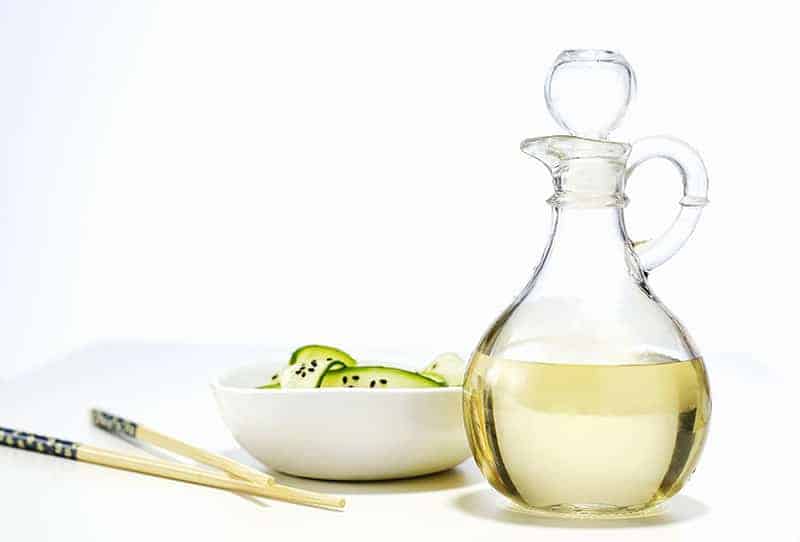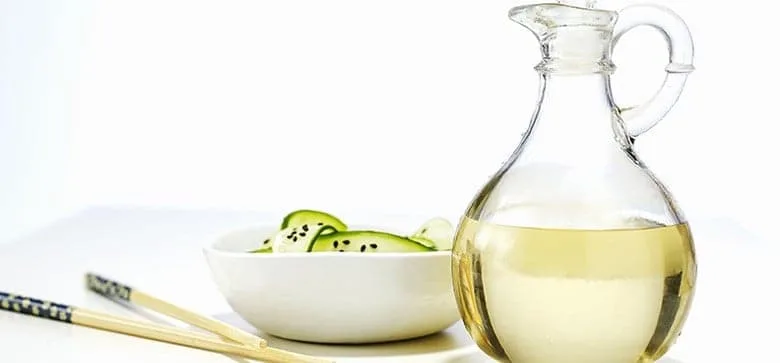Vinegar is one substance that has come a long way. It has documented history from different parts of the world and an equally diverse number of variants and preparation styles.
Vinegar has now become even more well-known, and you have probably used some for anything from cooking to the laundry or even for your skin.
Its production is very time intensive, and its primary raw materials are different foods from grapes to sugarcane and even rice.
Vinegar is a common ingredient in Asian delicacies, and a visit to any Asian grocery shop will show you just how much variety is available today.
They are available in different colors, flavors, and for various purposes.
Particularly, rice vinegar is a favorite ingredient. Although it is not as popular as a variant like white vinegar, its many uses and benefits make it highly valued.
But like with anything else you may wonder, does rice vinegar go bad?
Well, there are instances where it becomes unfit for consumption and detrimental to your health; different reasons cause this.
So, while rice vinegar is beneficial, you need to know how it can be harmful if it gets spoilt, the right ways to store it, and all the signs of “badness” to watch out for.
What is Rice Vinegar anyway?
As long as you are interested in cooking, skin care, or some forms of DIY, then you are familiar with the word “vinegar”.
Originally a French word, it means “sour wine”, and if you have sampled some of it, you can attest to its tart flavor.
This substance is the resulting product when food that contains sugar is fermented to drinkable alcohol, then fermented even further into vinegar.
According to science, vinegar is an aqueous solution which has acetic acid occupying about 5-20% of its total volume.
The acetic acid is a product of the fermentation of sugars, and oxidation of ethanol by acetobacter; a particular bacteria concerned with producing acetic acid. It also contains trace amounts of flavor chemicals.
There are several variants and flavors of vinegar, including red wine vinegar, white wine vinegar, apple cider vinegar and rice vinegar.
Rice vinegar, like its name implies, is a product of the systematic fermentation of rice water.
It is a spice used in cooking different meals, from barbecue ribs, salad dressing, and even sushi rice.
How to Store Rice Vinegar Properly?
Rice vinegar is an acidic compound that does not easily support the bacterial or mold growth necessary for decay, and so it has a long shelf life.
But this does not mean that it is immune to rotting. You need to take better care with its storage.
So, unless you intend to use up all your rice vinegar at a go, here are some tips to help you:
- Best place to store unopened or opened containers of rice vinegar is in your pantry.
- If no pantry is available, store in a dry place at room temperature.
- Ensure that you keep your rice vinegar away from direct sunlight and heat.
- Storage of rice vinegar should only be in glass, Stainless Steel, wood, or food-safe plastic. Do not store in metals like brass, copper, aluminium, or iron.
- After opening up a bottle, keep it tightly sealed.
- Refrigerate your rice vinegar once it is close to its expiry date, or if you intend to use it for more than five years.
- Freezing is not necessary, as it waters down the acidic tang after defrosting.
- Also, if freezing, ensure that you make use of a freezer safe container, as the glass can easily shatter at freezing temperatures.
Does Rice Vinegar Go Bad? How Long Does Rice Vinegar Last?

Due to its acidic nature, it is a widespread opinion that rice vinegar does not go bad, but the truth is that with time, it can lose its acidic quality.
It is used as a preservative for several perishable foods, so it has properties that allow it last long even after its best by date.
When not stored correctly, rice vinegar can lose its exciting taste and quality. That happens due to the exposure of vinegar to air, from which it absorbs water.
That, in turn, encourages the growth of acetobacter that further breakdown the acetic acid into water and carbon dioxide; diluting its flavor.
Rice vinegar does not have an exact shelf life, and it has this in common with other types of vinegar, including Cider vinegar.
The dates given by manufacturers as the expiry date is simply an estimate of how long the vinegar would stay fresh.
This date is usually set to two (2) years after its date of manufacture.
Even though rice vinegar is less acidic than most variants, with proper storage, it can last as long as you want.
An unopened bottle of rice vinegar has an expected shelf life of over ten years, while an opened bottle has a shelf life of over five years.
How to Tell if Rice Vinegar Is Bad? Rice Vinegar Shelf Life!
No one should consume food that is bad and no longer viable, but how do you know when your rice vinegar has gone bad?
Here are three crucial tips to help you identify rice vinegar that is no longer fit for consumption.
Some types of rice vinegar have transparent colors, a few variants are reddish, while others are almost black. A deviation away from its original color is a good sign of deteriorating quality.
Typically, rice vinegar has a pleasant aroma, but when this odor becomes rotten or “off,”.
While still at best quality, rice vinegar has a sour and tart taste, anything more bitter or different is a sign that it has gone bad.
Those tips represent the color, smell, and taste, the three most reliable ways to test the freshness or viability of rice vinegar.
Also, don’t be alarmed if you notice some cloudiness or slime at the bottom of the bottle. It is safe for consumption and external use.
Some users even prefer their vinegar with lumps of the mother, but if you find it disturbing, you can always filter it out with coffee filters.

Does Rice Vinegar Go Bad? How Long Does Rice Vinegar Last?
Ingredients
- Rice vinegar
- Air-tight containers or Ziplock bags
- Labels and markers
Instructions
- Read the guide thoroughly to learn how long it lasts.
- Check the u0022Best-by-dateu0022 to know when it expires.
- Make sure to store in an airtight container in a cool, dark place (pantry or fridge).
- Always check for signs of spoilage before using.
